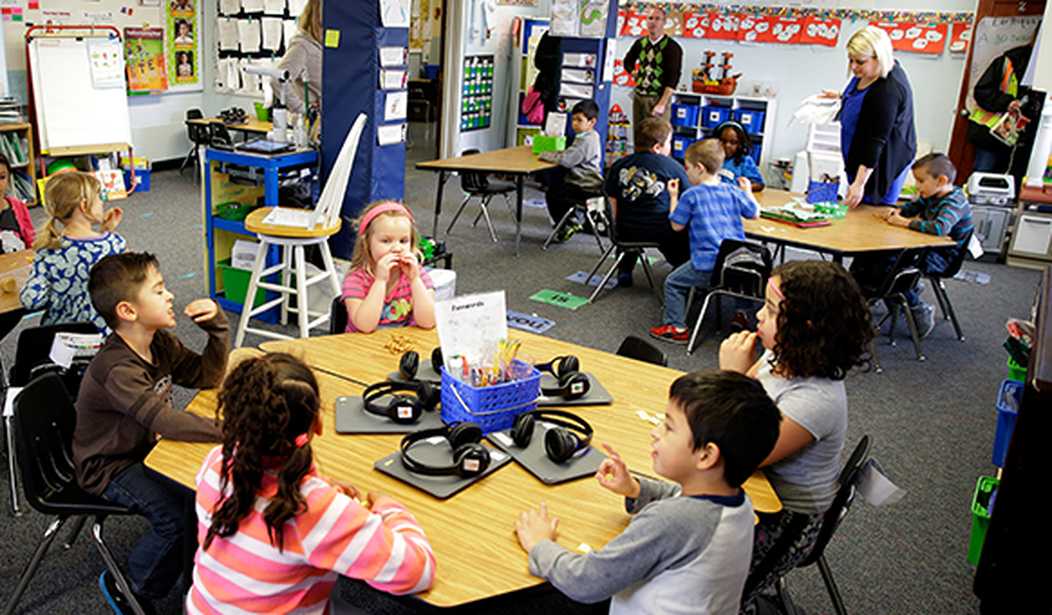When Joe Manchin dealt a death blow to the Build Back Better bill last month, one of the things that some supporters of the bill mourned was the $380 billion that would have gone to support universal pre-K. But what if it turns out Joe Manchin did the country a big favor?
A few days ago I saw someone sharing an abstract for a new, large scale study on pre-K with some surprising results. I couldn’t read the full study because it was behind a paywall but Freddie deBoer has read it and he wrote about it on his Substack.
The study looked at nearly 3,000 students and randomly assigned them to either pre-K or no pre-K. Then it tracked the outcomes for those students up through 6th grade. What it found is that the non-pre-k group did better in reading and math from 3rd to 6th grade.

That graphic is a bit dense but it’s basically showing reading and math scores for four grades (labeled below each pair of bar graphs). As you can see, the non pre-k cohort (the black lines) did better than the pre-k cohort in every case. As deBoer notes, pre-K proponents sometimes argue that non-academic outcomes are just as important. But the study looked at those too. This chart shows disciplinary action offenses and once again the non pre-K kids have fewer of them over time.

Finally, deBoer argues that this isn’t the only study suggesting pre-K doesn’t work as intended.
I just wrote about it not that long ago: the pre-K research record is most optimistically described as mixed and most realistically described as discouraging….
There are always exceptions and there are examples touted as proof that pre-K works. But the drift from the initial positive studies to more pessimistic later studies seems clear, from where I’m sitting, and the most compelling and parsimonious explanation is that we’ve gotten better at doing this research over time, with better study designs and higher data quality. The results are what they are. But liberals are forever looking for magic bullets in education, and a lot of them got very professionally, politically, and emotionally invested in pre-K, and it’s just really hard to get them to confront all the bad news.
While he’s pretty down on pre-k, deBoer does support universal child care. His argument is that this would definitely help out a lot of parents but as the study above indicates probably shouldn’t be looked at as a way to improve kids’ academic outcomes over time.








Join the conversation as a VIP Member